Best customer service chatbots
Few tools have impacted business as broadly and deeply as the customer service chatbot. Widely recognized as a transformational tool, artificial intelligence (AI) chatbots have made it possible for organizations to not only efficiently manage an increasing number of digital customer interactions, but also improve the quality of said communication.
These AI-powered software products use natural language processing (NLP) and pre-defined rules (like “if-then” statements) to engage in text-based conversations. Designed specifically to interact with customers, businesses train them to provide answers to frequently asked questions, offer personalized recommendations, resolve complaints, and more — all without the input of human agents.
And the results so far are compelling. Customer service leaders say chatbots have reduced working hours by 2.5 billion working hours and 30 percent in customer service costs — plus, more than two-thirds of customers say they prefer dealing with chatbots over humans.
Thanks to the wide variety of solutions available and the advanced capabilities of AI, it’s the perfect time to introduce chatbots into your customer service department. In this article, you’ll find 20 excellent options to choose from.
But first, we’ll highlight some benefits and identify the most important features to look for when shopping around for an AI customer service chatbot.
Pro Tip
Strengthen customer service with Jotform’s AI Chatbot for WordPress, an AI chatbot plugin embedded in your site, to provide 24/7 answers, collect details through forms, and route complex requests to your support team efficiently.
Benefits of using an AI chatbot for customer service
Customer service is a major component of the overall customer experience at any business. However, there are numerous challenges associated with this function that complicate the delivery of excellent service.
Chatbots minimize some of those complications, helping to bridge the gap between what customers expect and what an all-human service department is capable of providing:
- 24/7 availability: Today’s customers don’t want to wait when it comes to getting questions answered. Chatbots work endlessly and quickly, providing most answers within seconds.
- Significant cost savings: Customer service is traditionally viewed as a cost center. The best way to change this perception is to actively use tools like chatbots to increase your team’s overall efficiency and productivity, without needing to hire new agents.
- Personalized customer interactions: Chatbots can make good use of your customer data, directing visitors quickly to the types of products they are most suited to, and even anticipating needs before they arise.
- Scalability: You won’t have to worry about adjusting your team during busy (or slow) periods. Chatbots can easily handle increases in customer volume without compromising on quality of service.
- Customer satisfaction and retention: All of the above capabilities improve the customer support experience overall. As a result, customers are happier and more likely to stay loyal to your company.
Key features to look for in a customer service chatbot
The best customer service chatbot is the one that does the specific tasks you need it to do. But in order to do the job well, it should have certain characteristics. So, functionality aside, here are the essential features your chosen software should have to ensure you get the best return on your investment:
- Natural language processing: NLP enables chatbots to better understand the meaning behind customer questions, provide natural-sounding responses, and maintain context throughout lengthy exchanges. These characteristics are essential for conducting effective customer service interactions.
- CRM integration and help desk systems: If the goal is to improve customer interactions, then integrating your chatbot with other customer-centered systems can help you get there. Sharing customer data gleaned from chatbots makes it possible (and easier) to tailor any type of communication to match individual customer preferences.
- Multilingual support: Your customer base could expand in ways you don’t expect. Be prepared for growth by investing in a chatbot that can converse in multiple languages.
- Customization and scalability: You don’t need to build your own chatbot from scratch to end up with a product that perfectly suits your needs. Many out-of-the-box solutions are customizable to accommodate your brand and your tech stack. Make sure the one you choose can be suitably adapted and can handle increasing user demand too.
- Analytics and reporting features: You’ll want to be sure the chatbot you choose has robust analytics capabilities. Gathering and analyzing data related to customer behavior and chatbot interactions is crucial for continuously improving their performance.
Now, with these essential features in mind, let’s dive into the best customer service chatbots on the market in 2026.
How to choose the right customer service chatbot
In recent years, the market for chatbots has exploded — leaving you with a lot of potential options. The 20 AI chatbots for customer service named in this article are great starting points, but how can you tell which one is right for your business?
Many customer service chatbot offerings appear to be similar on the surface. But you can eliminate some options relatively quickly by using the following as guideposts:
- Will it help you achieve your business goals? The functionality of chatbot software varies. Before committing, identify your business needs and compare them to actual chatbot use cases. For example, are you looking for a more efficient way to handle a large volume of customer tickets? For more support around data collection specifically? For additional sales and marketing automation? Whatever your goal, let that be your guide.
- Will it work on all the channels you need it to? Consider the channels you need support for now as well as what you may need in future. Many of the above options are omnichannel solutions that will work across numerous platforms; others are limited to a few popular social media channels. Make sure the tool you choose will work well on the channels your customers prefer.
- Is it a good match for your team’s technical skill level? Although all of the solutions above are either no-code or low-code, some require more technical expertise than others. Before purchasing an AI chatbot for customer service, take advantage of free trials and get feedback from your team to ensure they feel comfortable using the product.
20 best customer service chatbots
1. Jotform AI Chatbot Builder
Whether you collect data from customers via forms or not, you can use Jotform AI Chatbot Builder to up your game. Without writing any code, you can turn a static form-filling exercise into a dynamic, conversational experience. Jotform AI Chatbot Builder is trained with the data you provide and can ask questions and answer your customers’ queries. All it takes is a few simple steps — selecting a form, training the AI with documents or URLs, and customizing it using the AI Chatbot Builder — to create and personalize your AI chatbot.
Jotform offers templates for a variety of functions that make it easy to get started, including 90-plus AI chatbot templates. For example, Jotform’s Information Request AI Chatbot Template is designed to enhance the way you provide information to client inquiries.
With Jotform’s AI-powered tools, your business can collect information more intuitively, efficiently, and engagingly.
Best for: Businesses of all sizes that want to enhance form-based customer interactions
Developer: Jotform
Key features: Text and voice conversations, multichannel support, enterprise-grade security, industry-leading information capture, easy-to-use interface for training AI agents
Pros: Users like the simplicity and broad range of chatbot templates, such as Support Satisfaction agents, Call-Back agents, and Application Processing Specialists
Cons: Jotform AI Chatbot Builder is limited with free use
Plans/Pricing: Jotform offers five price plans, ranging from a free starter plan (featuring five AI chatbots and 100 monthly conversations) to a custom-priced Enterprise plan with unlimited AI chatbot use.
G2 rating: N/A
2. Zendesk For Service
Zendesk For Service is a customer service solution that combines chat, agent support, and help center tools in one. It works across a variety of channels and includes numerous automation options that can help teams be more efficient.
Best for: Large customer service teams that will make good use of its vast array of tools and integrations
Developer: Zendesk
Key features: Automated ticket routing, messaging across all web, mobile, social, and business channels, workforce management tools
Pros: Users love that they can view communications across all channels (emails, chats, social media messages, calls, etc.) in one place
Cons: Taking advantage of advanced functions requires more expertise on the part of the user
Plans/Pricing: Zendesk offers four standard pricing plans; the lowest package that includes live chat costs $55 per agent per month; it also offers a free trial for 14 days
G2 rating: 4.3/5
3. Intercom
Intercom is an AI-first customer service platform with three components — an AI Agent that provides answers for customers 24/7; an AI Copilot that assists support agents; and an AI Analyst, that provides AI insights and recommendations for support leaders.
Best for: Mid-market companies, e-commerce companies
Developer: Intercom
Key features: Advanced AI chatbot, AI-enhanced inbox, AI insights and reporting
Pros: Its customer support team gets high praise, and the interface is intuitive and user-friendly
Cons: It has a lengthy setup process and pricing is less-than-transparent
Plans/Pricing: Intercom offers three pricing plans ranging from $29/seat/month to $132/seat/month; optional add-ons cost more; plus, the live chat agent costs $0.99 per resolution; Intercom offers a 14-day free trial
G2 rating: 4.5/5
4. Tidio
Tidio provides customer support teams with advanced live chat and chatbot functionality, along with a host of other tools, like automation, to help them deliver excellent customer experiences.
Best for: Small and medium-sized businesses
Developer: Tidio
Key features: Live chat that supports canned responses, pre-chat surveys, attachments, tagging, etc; automated workflows; Lyro conversational AI agent
Pros: It gets top marks for being easy to set up and use
Cons: Pricing is a bit high, and the free plan is very restrictive
Plans/Pricing: Tidio offers a free-forever plan as well as four pricing tiers ranging from $29/month to $2,999/month; you can also upgrade your chosen plan with extra automation features and Lyro AI conversations; a seven-day free trial is available
G2 rating: 4.7/5
5. Drift (part of Salesloft)
Together, Drift and Salesloft support sales, marketing, and customer success teams with a variety of tools to drive sales, including chatbots. The goal is to help companies be more strategic and intentional about engaging customers and acting on buyer signals.
Best for: Companies looking for a lead generation tool
Developer: Salesloft
Key features: Live chat, drift “bionic” chatbots, real-time lead qualifying
Pros: Users say it’s a powerful tool that has greatly streamlined customer communication; it also works well with Salesloft
Cons: Customizing the platform may require technical assistance
Plans/Pricing: Contact Salesloft for price information
G2 rating: 4.4/5
6. Freshchat
Freshchat supports live chat and offers AI chatbots for messaging with customers and prospects across channels. It also allows businesses to proactively reach out to customers with automated emails and SMS messages.
Best for: Small but fast-growing businesses, and larger organizations that need advanced chat features
Developer: Freshworks
Key features: AI-powered chatbots, unified agent inboxes, support ticket management
Pros: It integrates with Freshdesk; customers have said that it’s easy to implement and use
Cons: Some users have been disappointed in the AI chatbot’s performance; others say numerous bugs need fixing
Plans/Pricing: Freshchat has four pricing plans, ranging from a free plan for up to 10 agents to an Enterprise plan for $79/agent/month; a free 14-day trial is available
G2 rating: 4.4/5
7. HubSpot Chatbot Builder
HubSpot Chatbot Builder allows you to build your own website chatbot without any advanced technical knowledge or coding. Its chatbots are designed to work seamlessly with HubSpot’s other marketing and communications tools.
Best for: Businesses that use HubSpot products
Developer: HubSpot
Key features: Includes templates for a variety of bot types (lead qualifier, concierge, tickets, etc.); automation workflows; design customization to match your brand
Pros: You can customize the bot to fit your brand identity, and it will work hand-in-hand with your other HubSpot applications
Cons: The major benefit comes when you use it alongside other HubSpot products, which can be an expensive proposition
Plans/Pricing: The chatbot builder is free, however, as a standalone purchase its functionality may be limited. To get the most out of it, you may need to purchase the premium edition of one of its other products.
G2 rating: N/A
8. IBM watsonx Assistant
IBM watsonx Assistant is a virtual AI-powered chatbot that can answer customer questions and assist human agents in solving complex queries.
Best for: Large organizations that want to improve their customer service capabilities
Developer: IBM
Key features: Pre-built templates, drag-and-drop building, analytics dashboard, enterprise-grade security
Pros: It’s fast and (mostly) accurate in providing responses
Cons: Users say that some technical skills are required to use it effectively; additionally, some users have said its performance in languages other than English is not perfect
Plans/Pricing: IBM has three price tiers — a free Lite plan; a Plus plan starting at $140/month (with various add-ons); and an Enterprise plan that requires a custom quote
G2 rating: 4.4/5
9. Kustomer
The Kustomer platform strives to blend technology and humanity to create exceptional customer experiences. Its Customer Assist feature can be used to greet new customers, deliver or gather information, collect data, and more.
Best for: Medium to large companies with a high volume of customer interactions; growing e-commerce companies
Developer: Kustomer
Key features: Integrated CRM data, reporting dashboards, conversation workflows
Pros: Most reviewers say it’s very easy to use and are impressed with its broad functionality
Cons: It can take time to learn all the features, which is necessary in order to get the most value from Kustomer
Plans and pricing: Kustomer offers two types of pricing — seat-based pricing and usage-based pricing; both types have two tiers — Enterprise ($89/user/month or $0.35/conversation) and Ultimate ($139/user/month or $0.50/conversation)
G2 rating: 4.4/5
10. Gorgias
Designed specifically for e-commerce companies, Gorgias bills itself as an “all-in-one help desk” that allows users to manage customer communications across multiple channels.
Best for: E-commerce companies
Developer: Gorgias
Key features: Automated workflows, centralized inbox, social media sentiment monitoring
Pros: It has a user-friendly interface and integrates seamlessly with major e-commerce platforms
Cons: The analytics functionality has been described as “clunky” and “basic”; it’s also quite pricey
Plans and pricing: Gorgias offers five ticket-based pricing plans; the lowest-priced tier that offers AI chatbots and automation costs $117/month (300 help desk tickets and 60 automated tickets)
G2 rating: 4.6/5
11. Gladly
Gladly is a comprehensive customer service platform that prides itself on being customer-focused rather than ticket-focused, enabling “lifelong” conversations with customers. Its AI chatbots work across all channels, consolidating communications, and can hand off to live agents as needed.
Best for: Companies focused on sustaining customer loyalty over time
Developer: Gladly
Key features: Workforce management, real-time customer feedback, dedicated agent (consistent main point of contact)
Pros: Users love that it allows them to see the big picture of a customer’s communications, from their point of view
Cons: Some users have noted slow performance at peak times, and occasional software glitches
Plans/Pricing: Contact Gladly for price information
G2 rating: 4.7/5
12. Ada
Ada offers chatbot messaging and AI voice services for customer support teams. It works best in conjunction with platforms like Salesforce and Zendesk.
Best for: Organizations that want to safeguard their brand while scaling in customer service
Developer: Ada
Key features: 50-plus languages, omnichannel support (social, web, mobile, and SMS), smart routing
Pros: Its customer service team gets high marks for being helpful and responsive; most people also say Ada is very easy to use
Cons: The main downside is the limited number of integrations
Plans and pricing: Contact Ada to find out about costs for your organization; it has a usage-based pricing structure and offers a 14-day free trial
G2 rating: 4.6/5
13. Voiceflow
Want to build your own AI chatbot? You can do it with Voiceflow, a platform designed to help “ambitious product teams” build customized conversational experiences.
Best for: Organizations that want to create their own customized chatbots without the complexity of coding
Developer: Voiceflow
Key features: Drag-and-drop building, multichannel support, agent content manager, certified Voiceflow expert assistance
Pros: Most users like the fact that the platform gives them a high level of control over their chatbots; they also feel the platform is intuitive and easy to use
Cons: It lacks robust analytics; additionally, some reviewers commented that the platform is continuously improving, which is good but requires frequent adjustments to their chatbots
Plans/Pricing: In addition to a free plan with limited features, Voiceflow has three paid plans: Pro ($576/yr/editor), Team ($1,200/yr/editor), and Enterprise (custom pricing)
G2 rating: 4.7/5
14. Chatbot Builder AI
Another DIY option, Chatbot Builder AI says its state-of-the-art platform offers the quickest, simplest path to building world-class custom chatbots — no coding involved.
Best for: Small agencies to enterprises that want to build customized bots of all types and complexity levels
Developer: Chatbot Builder AI
Key features: Omnichannel support, marketing and lead-generation tools, “creative” AI capabilities like image generation, videos, quizzes, and more
Pros: Users love the community that has sprung up around this platform allowing them to support and share new ideas
Cons: The developers are quickly adding new features, which can make it difficult to stay current
Plans/Pricing: Chatbot Builder AI offers a free “sandbox” account for users to explore the platform; its paid package options are $49.99/month for unlimited user seats, $595/mo for the white label plan, and $2,499 for the white label enterprise plan
G2 rating: 5/5
15. Crisp
Crisp is a business messaging platform that supports more personalized customer interactions. Customer service teams use it, as well as sales teams for engaging leads, and marketing teams for targeted messaging.
Best for: Small and medium-sized businesses as well as startups
Developer: Crisp
Key features: Live chat support, built-in analytics and reporting tools, CRM functionality
Pros: Users generally feel it offers good value for the money, and praise its customer support team
Cons: Limited or missing features are a common complaint among users
Plans and pricing: Crisp has four price packages, ranging from a free plan to a Plus plan for $295/month (includes 20 seats); you can try any plan for free for 14 days
G2 rating: 4.5/5
16. LivePerson
An AI-powered messaging platform, LivePerson helps large organizations conduct meaningful, personalized interactions with customers, at scale.
Best for: Large, highly-regulated, consumer-facing enterprises
Developer: LivePerson
Key features: Bot builder, voice AI, real-time consumer intent detection
Pros: Most customers agree it’s an easy-to-use, straightforward tool with good features
Cons: Some users say that areas of the platform need updating, such as the reporting suite and the chat window. Plus, technical expertise is required for setup.
Plans/Pricing: LivePerson has three tiers: Bronze, Silver, and Gold; most of the intelligent automation features begin at the Silver tier; request a quote for individualized pricing
G2 rating: 4.2/5
17. ChatBot
ChatBot is an all-in-one customer service automation tool that allows you to streamline all aspects of customer support. It’s ideal for creating bots to engage customers on your website and any web service, including Facebook Messenger, Slack, and LiveChat.
Best for: Businesses looking for support on the specific channels named above
Developer: text|
Key features: Support tickets, chatbot templates, advanced workflows, analytics tool
Pros: Most reviewers felt it was easy to set up and use
Cons: Some users feel the price is too high for the value
Plans and pricing: ChatBot has four price plans: Starter ($52/month for small companies); Team ($142/month for advanced AI features); Business ($424/month for complete AI automation); and Enterprise (call to request a quote for custom AI automation); 14-day free trials are available
G2 rating: 4.4/5
18. Chatfuel
Chatfuel is a no-code chatbot-building platform that allows you to build website chat widgets as well as bots specifically for use on the popular messaging channels WhatsApp, Facebook Messenger, and Instagram.
Best for: Businesses looking to automate customer communications on Meta channels
Developer: Chatfuel
Key features: Built-in ChatGPT, built-in CRM, chatbot templates, analytics tools
Pros: Reviewers say it’s easy to use and implement
Cons: Customers say Chatfuel implemented price increases (due to an increase in the customer’s subscriber numbers) automatically and without their knowledge
Plans and pricing: Chatfuel offers two types of bundled packages: one for Facebook and Instagram, and another for WhatsApp; Business plans cost $23.99/month and $34.49/month respectively; Enterprise plans for both packages start at $300/month; Free trials are available.
G2 rating: 4.4/5
19. Customerly
Part-help center and part-marketing automation platform, Customerly supports business growth by efficiently handling customer tickets and automating marketing communications.
Best for: SaaS companies and startups that want to increase efficiency
Developer: Customerly
Key features: AI-enhanced conversation inbox, email marketing templates, in-app surveys
Pros: Most users say Customerly has significantly increased their efficiency without sacrificing quality, and they like how easy it is to send notifications to customers
Cons: Some reviewers have noted software glitches, as well as occasional lags in performance
Plans/Pricing: Visit Customerly’s pricing page to see prices based on your monthly active users and estimated monthly interactions
G2 rating: 4.4/5
20. Zowie
Zowie offers a comprehensive set of tools for customer service departments, including a customer-facing AI agent, an AI inbox, and a new voice agent. Its specialized large language model was designed for customer service, enabling it to deliver exceptional experiences.
Best for: Companies of all sizes that want to provide a best-in-class customer experience
Developer: Zowie
Key features: Sentiment analysis, workflow automation, multichannel support (email, chat, phone, social media)
Pros: Users like the ease of making changes to the system, and say implementation is quick
Cons: Some users feel the customization options are lacking
Plans and pricing: Contact Zowie for a price quote
G2 rating: 4.7/5
Photo by: freepik




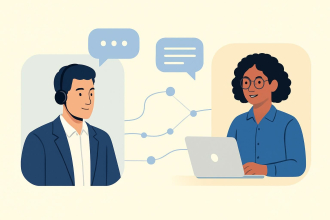




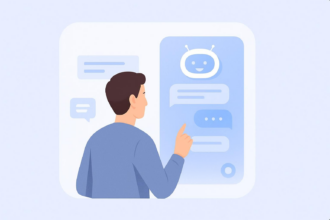


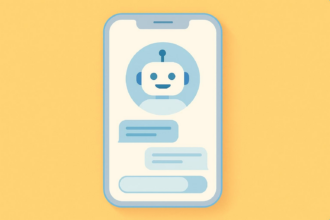
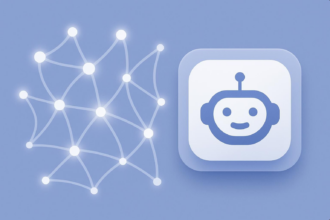



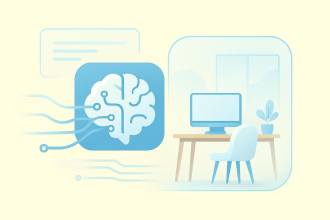
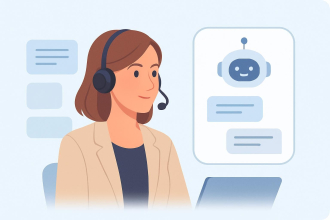
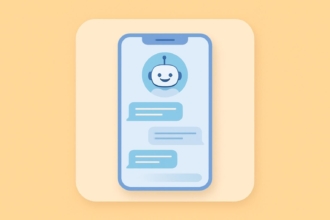
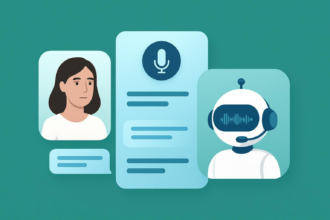

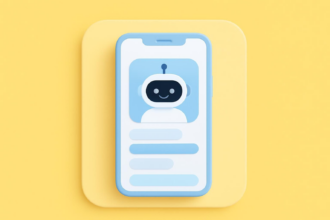

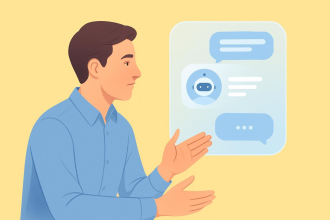

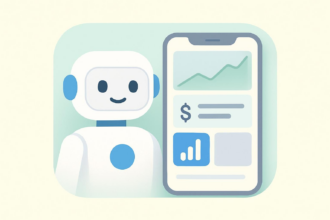

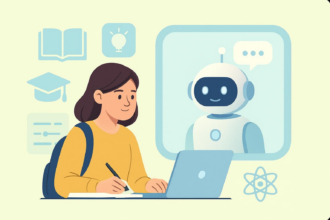
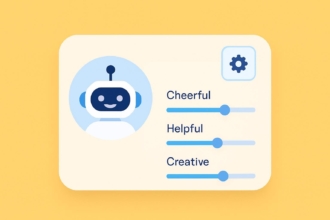


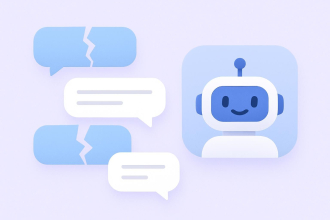



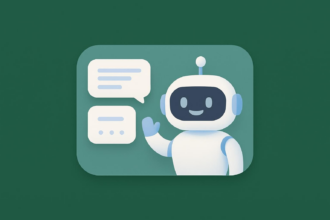



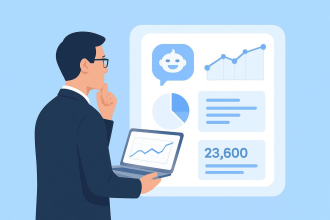










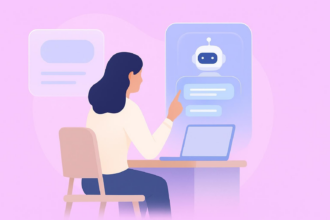
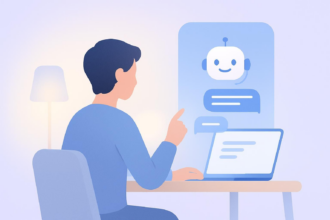

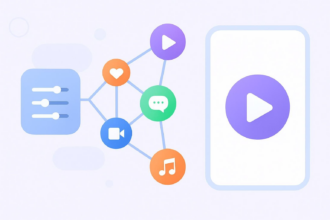


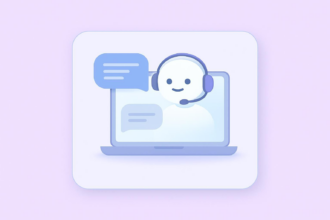
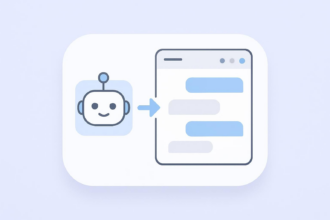
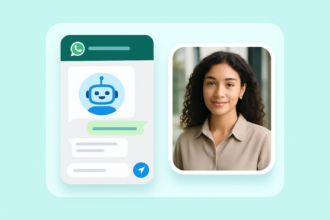
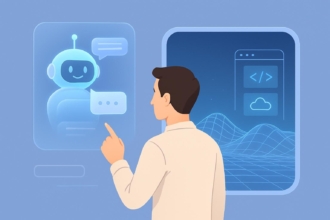
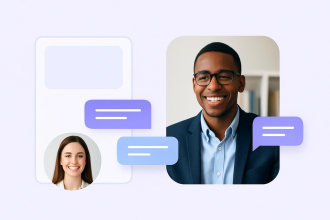


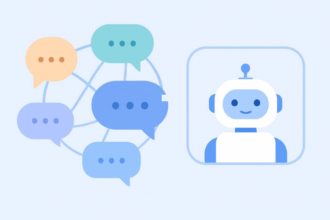
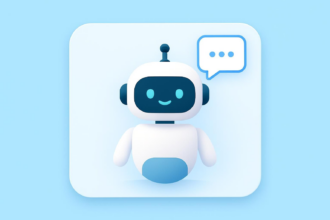
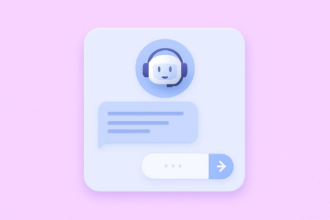
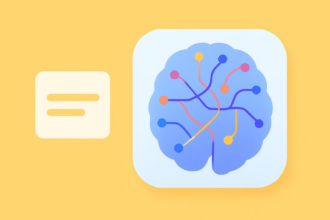
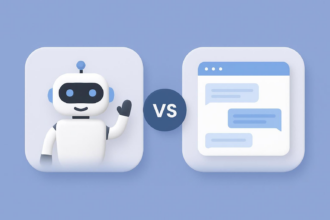



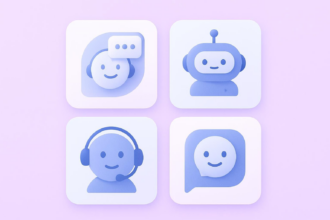


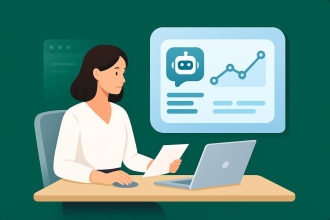
Send Comment: